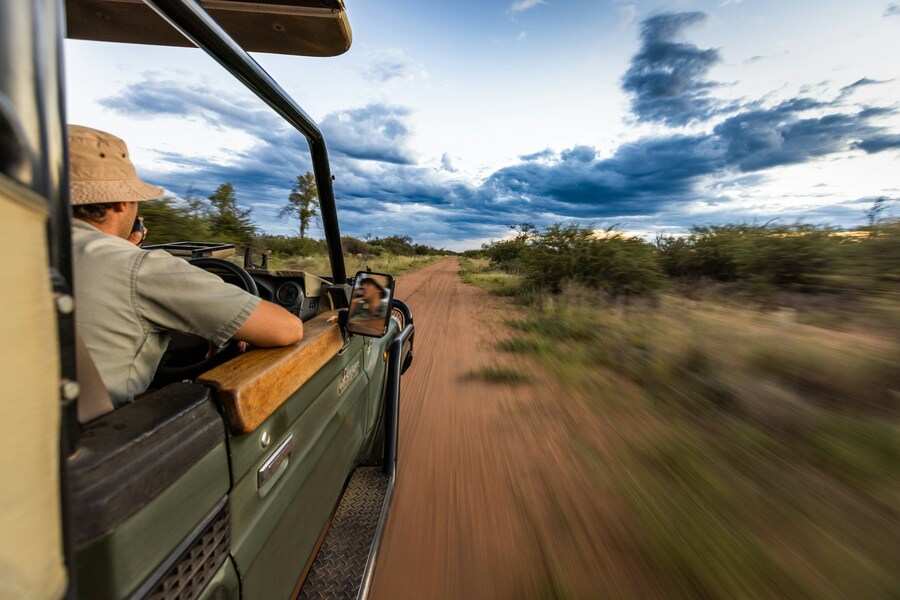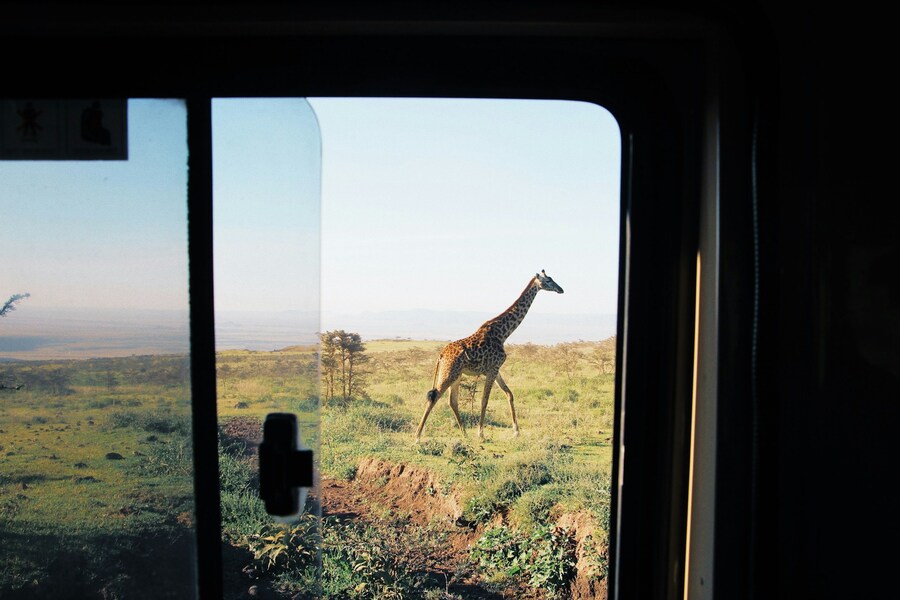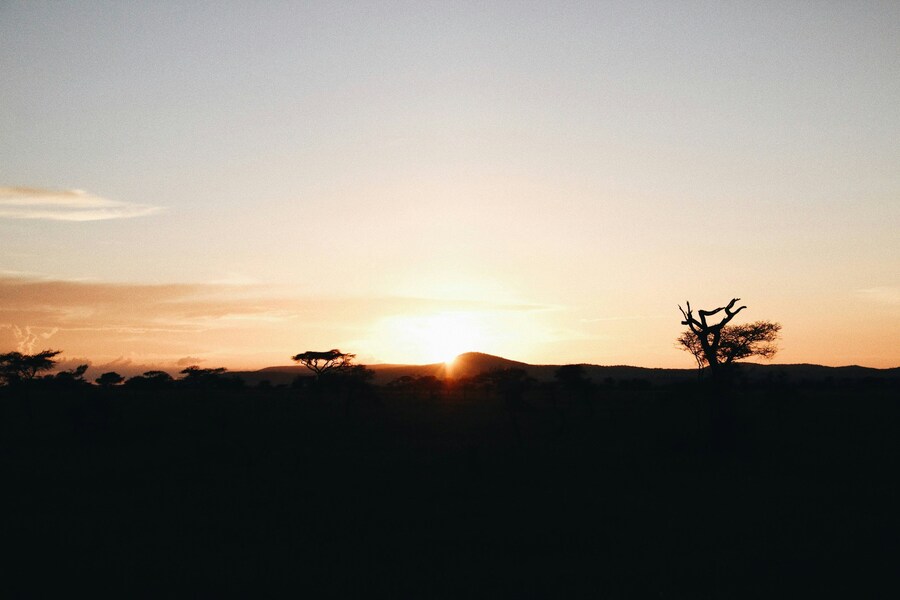Embarking on an African safari is more than just a trip; it's an immersive journey into the heart of the wild, a chance to witness nature's grandeur and its most magnificent creatures in their untamed habitat. It's a venture that captivates the imagination, offering a sensory tapestry of sights, sounds, and experiences that are utterly unique. Imagine the dusty air, the roar of a lion under a billion stars, and the humbling sense of being a silent observer in a world governed by ancient instincts. The vast savanna and dense woodlands offer endless opportunities for discovery.
For anyone contemplating this adventure, this travel guide is designed to demystify the process, answering the most critical questions and illuminating the path to an unforgettable safari experience. From the rhythm of a typical day in the bush to the intricacies of planning and booking, we'll cover everything you need to know to transform your dream into a breathtaking reality. The sheer scale and diversity of the African continent mean there's a safari for every type of traveler, whether you seek raw adventure, refined luxury, or something in between. Our comprehensive breakdown addresses logistics, costs, and timing to ensure your planning is seamless and stress-free. So, let the adventure begin!
Ready to tackle the African wild and plan your epic safari adventure?
What's a day on safari like?

Source: redcharlie/Unsplash
The essence of a safari lies in its rhythm, a daily flow dictated by the movements of the animals and the rising and setting of the sun. A typical day begins before dawn, often with a gentle wake-up call and a mug of hot coffee or tea. This early start is intentional, as the cool, crisp air of the morning is when the wild comes alive. As the sun peeks over the horizon, casting a soft, golden light across the landscape, you'll set out on your first game drive. This is arguably the most productive time for wildlife viewing, as predators are returning from their night of hunting and other animals are at their most active before the midday heat settles in. The silence of the savanna is punctuated only by the rumble of the safari vehicle and the occasional call of a distant bird.
After several hours of exploration, you'll return to your lodge or camp for a hearty brunch. This midday period is a time for relaxation, as the intense heat of the sun causes both animals and humans to seek shade and rest. Many lodges are equipped with inviting amenities like swimming pools or comfortable verandas, offering a chance to unwind, read a book, or simply soak in the tranquility of the surroundings. It's a moment to recharge before the next phase of your adventure begins. A light lunch or afternoon tea is often served, and in the late afternoon, as the temperatures begin to cool, you'll head out for the second game drive of the day. This drive is equally rewarding, as the animals once again become active, and the changing light provides incredible opportunities for photography.
As the sun dips below the horizon in a spectacular display of color, many safaris include a "sundowner" stop. Here, you'll disembark from the vehicle to enjoy a refreshing drink and watch the breathtaking sunset, a ritual that marks the transition from day to night. After returning to camp, you'll have time to freshen up before gathering for a communal dinner, often under a blanket of stars. This is a time for sharing stories and connecting with fellow travelers and guides. Some camps may even offer the chance for a night drive, where powerful spotlights reveal the nocturnal world, offering a chance to spot elusive creatures like leopards or civets. The day concludes with the mesmerizing sounds of the bush, a symphony of crickets, frogs, and distant animal calls that lulls you to sleep.
Which safari should you pick?

Source: Ellena McGuinness/Unsplash
The term "safari" is broad, encompassing a wide range of experiences tailored to different preferences and budgets. The choice of safari type is crucial to the overall success of your trip, and it's important to understand the distinctions. A traditional game drive safari, conducted in an open-sided vehicle, is the most common format. These are led by expert guides who use their knowledge to track animals and provide insightful commentary. This style is offered across all price points, from budget-friendly group tours to exclusive, private excursions. For those seeking a deeper connection to the land, a walking safari offers an intimate perspective, allowing you to learn about the smaller details of the ecosystem, from tracking footprints to identifying medicinal plants.
For the truly adventurous, a mobile safari provides an authentic, "out in the bush" experience. These safaris involve traveling between different campsites, with the camp itself being packed up and moved. This allows for a more flexible and dynamic itinerary, following the migration of animals. On the other end of the spectrum, luxury lodge safaris offer unparalleled comfort and opulence, with gourmet dining, private plunge pools, and personalized service. These options often come with a higher price tag but provide a level of exclusivity and relaxation that's unmatched.
For those who have a specific animal on their bucket list, like mountain gorillas or chimpanzees, specialized safaris are available. Gorilla trekking in Rwanda or Uganda, for instance, involves hiking through dense forests to spend a precious hour with these magnificent creatures. Similarly, a safari to the Okavango Delta in Botswana might include a mokoro (dugout canoe) trip, offering a unique water-level perspective of the wildlife. When considering a safari, it's vital to research the type of experience that resonates with you most, as it'll shape the entire tone of your journey.
Best time to hit the safari trail?

Source: Ellena McGuinness/Unsplash
The success of your safari can be heavily influenced by the timing of your visit. The African seasons are generally divided into 2 main periods: the dry season and the wet or "green" season, and the best time to go depends on your priorities. The dry season, typically from May to October, is considered the peak time for game viewing. During these months, vegetation is sparse, making it easier to spot animals. Water sources are also limited, causing animals to congregate around permanent rivers and watering holes, which makes them easier to locate. The weather is generally cooler and drier, with fewer mosquitos. The downside is that this is the busiest and most expensive time to travel, with lodges and camps often booked out far in advance.
The wet or green season, from November to April, offers a different, but equally rewarding, experience. The rains transform the landscape into a lush, vibrant green, and the air is clear, making for stunning photography. This is also the time of year when many animals give birth, so you can witness the spectacle of newborn calves and foals. The green season is a prime time for birdwatching, as migratory birds arrive in vast numbers. The major benefit is that crowds are thinner and prices are significantly lower, offering great value for money. While some roads may become difficult to navigate and game viewing can be more challenging due to the thick foliage, a green season safari is a fantastic option for the budget-conscious traveler or anyone who wants to experience a different side of the African bush. Ultimately, the best time to go is subjective and hinges on what you want to get out of your trip.
What's the safari price tag?

Source: Giorgio Trovato/Unsplash
The cost of a safari can vary dramatically, from a few hundred dollars per person per day to several thousand. The price is influenced by numerous factors, including the country, the type of safari, the level of accommodation, the length of the trip, and the season. Generally, a safari in Eastern Africa (Kenya, Tanzania) is priced differently than one in Southern Africa (South Africa, Botswana, Zimbabwe).
- Accommodation. This is one of the biggest cost variables. Budget safaris often use public campsites or basic lodges, while mid-range options include comfortable tented camps and private lodges. Luxury safaris, on the other hand, feature exclusive camps with private guides and lavish amenities.
- Transportation. International flights to and from Africa are a significant expense. Once there, transportation costs can include domestic flights, safari vehicles, and transfers.
- Park fees. These fees are mandatory and can be a substantial part of the total cost. They vary by country and park and are used for conservation and park maintenance.
- Other expenses. Don't forget to budget for things like travel insurance, vaccinations, visas, and tips for your guides and lodge staff. Tipping is customary and a key part of the local economy.
It's crucial to get a detailed breakdown of what is included in your safari package to avoid any surprises. For those flying into a major hub before their adventure, considering your logistics is key. One area where you can find great savings is with airport parking. For instance, services like ParkingNearAirports.io offer a convenient and affordable alternative to on-site airport lots. By pre-booking your spot, you can take advantage of competitive airport daily parking rates, often secured with a cheap airport parking coupon found on their website. This simple step can significantly reduce your travel expenses, giving you more to spend on the safari itself. The platform provides a transparent overview of different airport parking prices from various off-airport lots, complete with free shuttle services and secure facilities.
Key stuff to think about when booking your safari

Source: Ed Hardie/Unsplash
Booking a safari requires careful planning to ensure everything goes smoothly. The first step is to choose your destination. Each country offers a unique safari experience, with different landscapes, animal populations, and cultural aspects. Once you've chosen a region, consider the length of your trip. A minimum of 5 to 7 days is recommended to get a real feel for the bush and have a good chance of seeing the "Big Five" (lion, leopard, elephant, rhino, and buffalo).
Your choice of tour operator is also critical. Look for a reputable company with a strong track record and knowledgeable guides. Reading reviews and getting recommendations from past travelers can be invaluable. It's also wise to check their commitment to responsible tourism and conservation. Consider the size of your group – private safaris offer flexibility and personalized attention, while group tours can be more social and cost-effective.
Finally, think about the practicalities of travel. When flying, check luggage restrictions, as small bush planes often have strict weight limits. Be sure to pack a mix of light, neutral-colored clothing, a hat, sunscreen, insect repellent, and a good pair of binoculars. A decent camera with a zoom lens is a must-have to capture those unforgettable moments. By meticulously planning each element of your trip, from your arrival logistics to the smallest packing details, you can ensure that your ultimate safari adventure is everything you've dreamed of and more.
Conclusion
A safari is more than just a vacation; it's a profound journey that connects you with the natural world in a way few other experiences can. It challenges your perceptions, enriches your understanding of wildlife, and leaves you with memories that will last a lifetime. From the thrill of spotting a lion in the wild to the serene beauty of a sunset over the savanna, every moment is a testament to the untamed spirit of Africa. By considering the practical advice outlined in this guide, you are well-equipped to embark on this incredible adventure. Embrace the unexpected silence of the dawn, the majesty of the great herds, and the quiet dignity of the land itself. This commitment to conservation and wonder is what makes the experience truly transformative. It's a journey of discovery, not just of the majestic animals you'll see, but of the awe and wonder that reside within yourself when you stand in the presence of nature's raw power and beauty. Go forth, explore, and let the wild call you home! We wish you a magnificent and life-changing journey!






